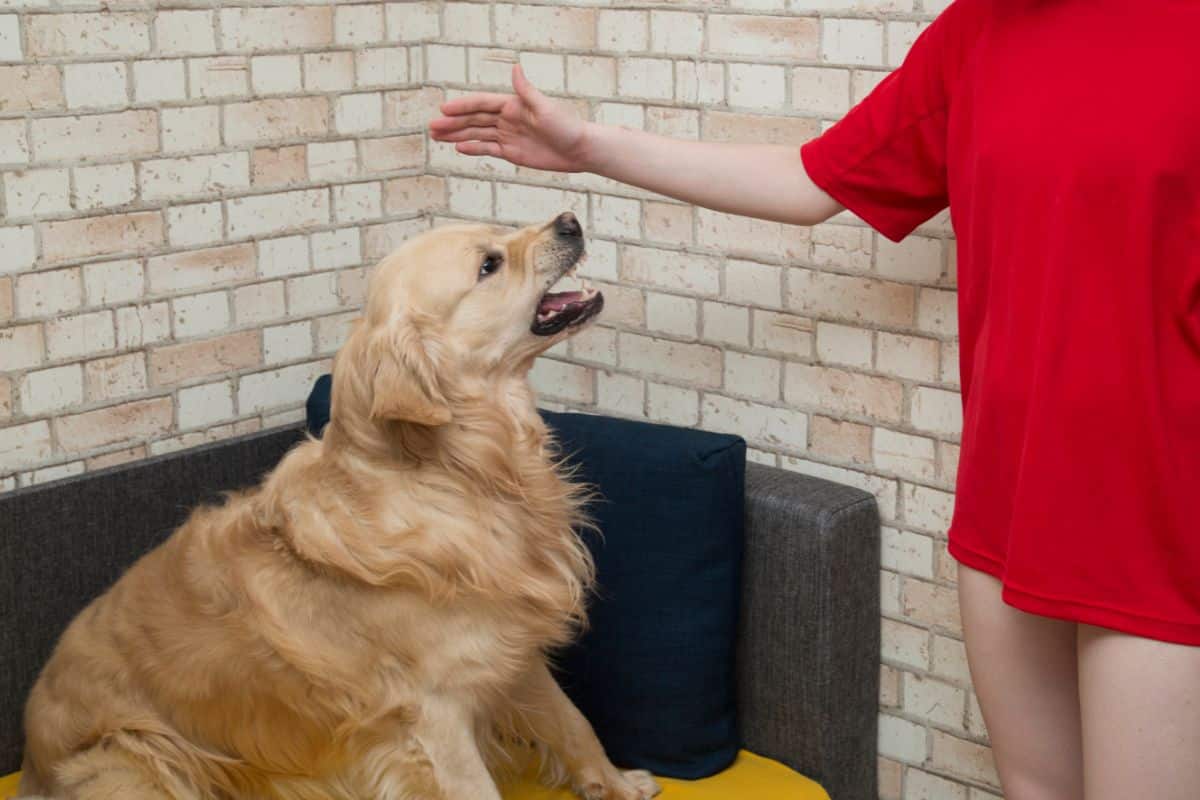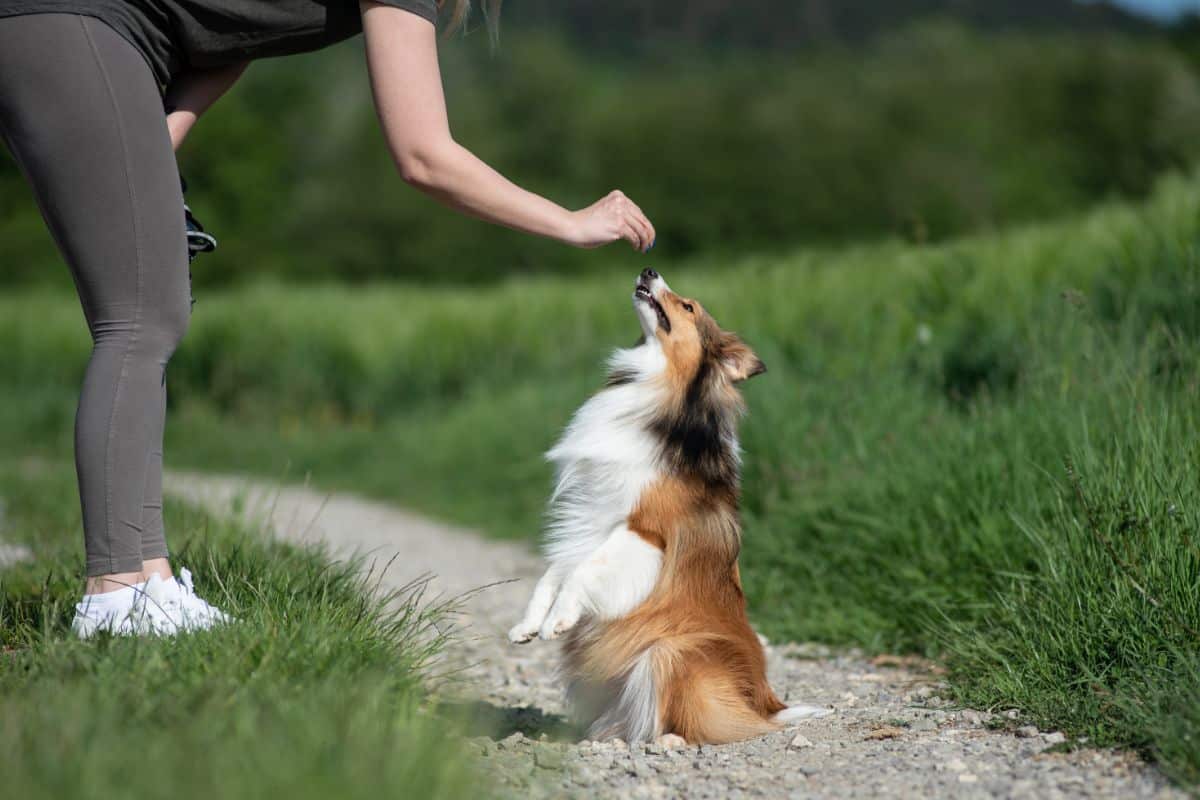When you’re suffering from allergies, we take some medicine for it. For example, an antihistamine tablet like Piriton will usually make us feel slightly better.
But what happens when your dog is suffering from allergies too? Is it safe for them to eat a Piriton tablet?
Given that Piriton is a medication for humans and their allergies, you’d be right to question whether giving them to a dog is safe.
However, vets sometimes prescribe Piriton to a dog to help lessen the animal’s allergies to pollen and their symptoms.
You can safely administer Piriton to your dog at 0.2mg or 0.4mg per kilogram of their body weight as a licensed veterinarian prescribes. The dosage may vary based on your dog’s physical characteristics and allergies.
Is It Safe For My Dog To Eat Piriton?
As we’ve just touched on, it can sometimes be safe for a dog to eat Piriton. However, you should not give the Piriton to your dog without the approval and guidance of a professional vet.
Some dogs will not react well to Piriton and could suffer, so you need to have a vet analyze whether your dog will be okay to have Piriton first.
On top of that, your vet will tell you how much Piriton your dog can have each dose, and we’ll cover that shortly.
When Does Piriton Take Effect In Dogs?
As you’ll know from experience, medicine doesn’t always work instantly.
Once administered, Piriton should start affecting your dog within 24 hours. At this point, their allergy symptoms should be lessening. You might notice that your dog becomes a little drowsy too, but this is expected from Piriton.
How Much Piriton Can A Dog Eat?
As we’ve stated, your dog should only eat Piriton if a vet prescribes it. You shouldn’t just give it to them of your own doing. When a vet prescribes it, they will examine your dog first to see if it’s suitable.
When they’re doing this, they will work out the dosage, calculating how much Piriton your dog can eat.
They work this out by looking at the age of your dog, as well as its age.
On top of that, they also look at how bad your dog’s allergy symptoms are because a dog displaying multiple symptoms will need a bigger dosage.
Generally, a dog will be prescribed a Piriton dosage between 0.2mg and 0.4mg per kilo of the dog’s body weight. Tablets typically come in doses of 4mg, roughly equivalent to 10ml of liquid Piriton, so you may need only to give them some of the tablet.
Let’s look at an example! If your dog weighs 10kg, being a small breed, then their prescribed dose from the vet would be between 2mg and 4mg. As you can see, this is either half a 4mg tablet or a full one.
As for how regularly a dog should take its dose that was prescribed from the vet, it’s typically every 8 to 12 hours. This is because doses can be given up to 3 times a day, which would roughly equal these big jumps in time.
Always make sure you’re waiting the proper amount, otherwise it could be dangerous. On top of that, you should keep track of how your dog is reacting to the Piriton, only giving them the repeat doses if they’re still needed.
Essential Safety Information For Dogs And Piriton
As we’ve reinforced a few times now, you must absolutely not give Piriton to your dog unless a vet has specifically prescribed it to them, and even then only in the doses that they’ve dictated.
If you give your dog more than the prescribed dose, they could overdose and be at risk of dangerous reactions like seizures.
A pet should never be given more than 1.2mg of Piriton per each pound of their body weight.
One of the reasons that a vet needs to examine your dog first to see whether Piriton is the right course of action is because they will be able to tell whether your dog’s symptoms are from an allergy, or whether they’re actually signs of another health problem which needs different treatment.
On top of that, some dogs could react very badly to Chlorphenamine Maleate, which is a key part of Piriton.
Additionally, if your dog is taking other medicines, then Piriton can easily react badly with them as a result.
However, by getting an assessment from your vet first, they should be able to prescribe (or not prescribe) Piriton based on your dog’s situation.
What Side Effects Does A Dog Get From Piriton?
Just as in humans, giving prescribed Piriton to a dog can cause side effects.
Some of these side effects are pretty grueling, for both the dog and you having to look after it, so be sure to keep these in mind before giving a vet-prescribed dose.
If your dog starts displaying these, especially ones like constant vomiting, vision issues, and fluid retention, then you must take them to a vet immediately for their health.
Your Dog Is Thirstier Than Normal
If your vet has allowed your dog to have Piriton, you might notice your dog craving more water than normal after they’ve taken the antihistamine and it’s settled in.
You’ll be able to tell because they’re drinking more water (or indicating that they want more), smacking their lips, or opening and shutting their mouth repeatedly.
What causes this extra level of thirst? Well, Piriton can occasionally make it so that a dog’s salivary glands function less, meaning they create less saliva than normal.
With less saliva, a dog’s mouth will get dryer and the dog will become much thirstier.
Your Dog Feel Nauseous
If your dog looks like they’re feeling nauseous, that’s another potential side effect of them eating Piriton.
Your Dog Starts Vomiting
Following on from the nausea, your dog might also start vomiting. This is a particularly unpleasant side effect that can come from Piriton.
Your Dog Has Diarrhea
Similarly, your dog might also start having diarrhea as a result of taking prescribed Piriton. Make sure to look out for the signs and examine their waste.
Your Dog Becomes Constipated
Quite the opposite from diarrhea, you might find that your dog has become constipated from the Piriton instead. Look out for the signs of constipation, such as your dog crying or straining, or crouching when they try to defecate.
Your Dog Is More Aggressive

In some cases, a dog could become more aggressive as a side effect of eating Piriton, demonstrating big mood and behavior changes.
Your Dog’s Sleep Habits Have Changed
Piriton could also affect your dog’s sleeping habits, altering their moods and changing the times when they sleep. For example, they might seem very drowsy during the day, and have difficulty sleeping at night.
Your Dog Loses Its Appetite
Finally, a potential sidFinally, a potential side effect of your dog eating Piriton is a loss of appetite. You might find that your dog is eating less of something, preferring a different meal, or another change altogether.
It’s important to make sure that they still get the correct amount of food and nutrients each day.e effect of your dog eating Piriton is a loss of appetite.
You might find that your dog is eating less of something, preferring a different meal, or another change altogether.
It’s important to make sure that they still get the correct amount of food and nutrients each day.
Is Piriton Good For Other Afflictions?
It might be the case that your dog has suffered another affliction, and you’re wondering whether Piriton could help ease their pain.
For example, your dog could have fleas and be suffering an allergic reaction to the flea bites. A key symptom that your dog has reacted badly to flea bites is that the dog’s skin becomes very itchy and red.
A dog will typically scratch a lot as a result, and that only worsens the problem. There are flea treatments on the market, which you should use first before the reaction gets out of hand. However, a doctor might prescribe Piriton for pain too.
Similarly, a dog might suffer an allergic reaction from a sting, from a bee or wasp. Their face will often become red and irritated as a result, and so some vets will prescribe Piriton to ease the pain.
Remember, always get a vet check first.
Final Thoughts
Your dog should only eat Piriton when prescribed by a vet – and in their prescribed doses.




